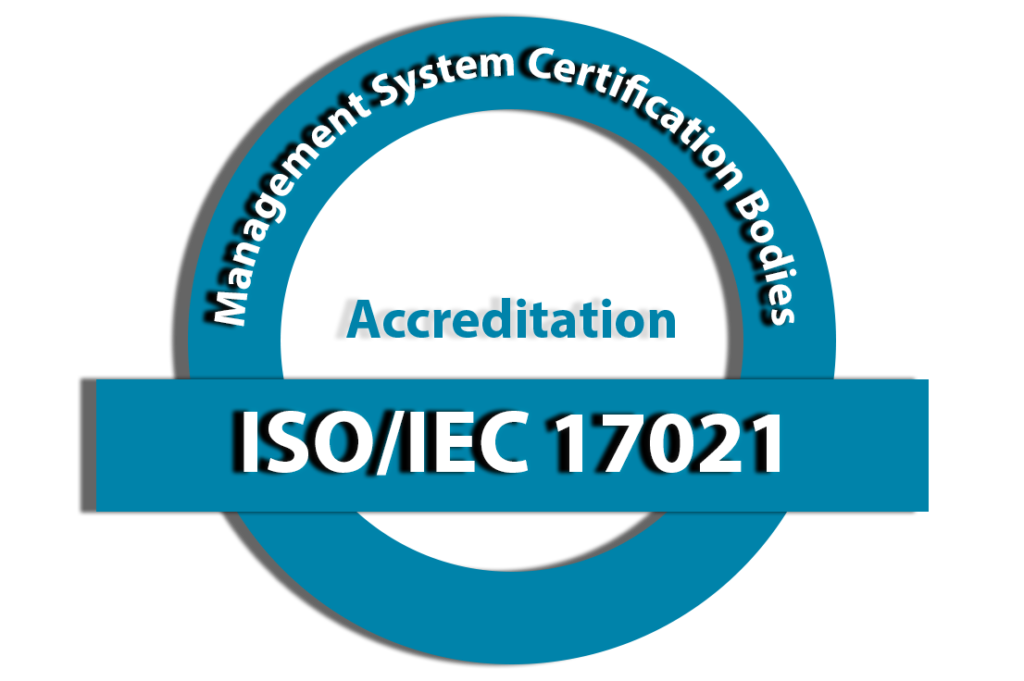ISO/IEC 17021 Accreditation
ISO/IEC 17021 Accreditation
ISO/IEC 17021 is an accreditation standard, it specifies requirements for bodies providing audit and certification of management systems. ISO/IEC 17021 ensures that certification bodies demonstrate competence, impartiality, and consistency in auditing and certifying management systems. These management systems can include quality management (e.g., ISO 9001, ISO 14001, ISO 45001 and others)

What is ISO/IEC 17021 Accreditation
ISO/IEC 17021 is accreditation standard that specifies requirements for bodies providing audit and certification of management systems. The aim of ISO/IEC 17021 is to ensure that these certification bodies operate competently, consistently, and impartially. This standard is vital for maintaining the credibility of certification processes worldwide, covering various management systems such as ISO 9001 (Quality Management), ISO 14001 (Environmental Management), and ISO 45001 (Occupational Health and Safety Management).
The development of ISO/IEC 17021 traces back to the need for a harmonized standard that would govern the operations of certification bodies globally. Standard was modified and published in:
Relationship Between ISO/IEC 17021 and ISO/IEC 17011
ISO/IEC 17021 sets the requirements for certification bodies that audit and certify management systems, whereas ISO/IEC 17011 establishes the requirements for accreditation bodies that evaluate these certification bodies. The accreditation process conducted under ISO/IEC 17011 is essential for validating that certification bodies comply with ISO/IEC 17021, thus ensuring the certification bodies’ operations are credible and trustworthy.
Requirements of ISO/IEC 17021
ISO/IEC 17021 sets out comprehensive requirements for certification bodies, ensuring they maintain high standards of professionalism and competence. Key requirements are:
- Certification bodies must demonstrate impartiality, maintain legal and contractual obligations, and ensure liability and financing arrangements are in place
- Certification bodies must have a clear organizational structure, outlining responsibilities, and authorities to support impartial operations.
- Personnel involved in the certification process must be competent, regularly trained, and evaluated. This includes auditors and technical experts.
- Detailed guidelines on the certification process, including audit planning, execution, reporting, and decision-making, ensuring consistency and transparency.
- Certification bodies must implement a management system that addresses quality, operational procedures, and continual improvement.
Benefits of ISO/IEC 17021
- Adopting ISO/IEC 17021 offers numerous benefits to certification bodies, their clients, and the broader market.
- Certification bodies operating under ISO/IEC 17021 are recognized for their competence and impartiality, fostering trust among clients and stakeholders.
- Compliance with ISO/IEC 17021 enables certification bodies to be globally recognized, facilitating international trade and cooperation.
- The standard ensures that certification processes are consistent and reliable, providing confidence in the certified management systems.
- The management system requirements of ISO/IEC 17021 promote a culture of continuous improvement within certification bodies.
- By adhering to structured and transparent processes, certification bodies can better manage risks associated with certification activities.
- Certification bodies certified to ISO/IEC 17021 can differentiate themselves in a competitive market, attracting more clients and partnerships.
ISO/IEC 17021 plays a critical role in the global certification landscape, ensuring that certification bodies operate with the highest levels of competence, impartiality, and consistency, meeting the rigorous requirements of this standard, certification bodies can enhance their credibility, improve their operational processes, and contribute to the overall trust and reliability of management system certifications worldwide.
